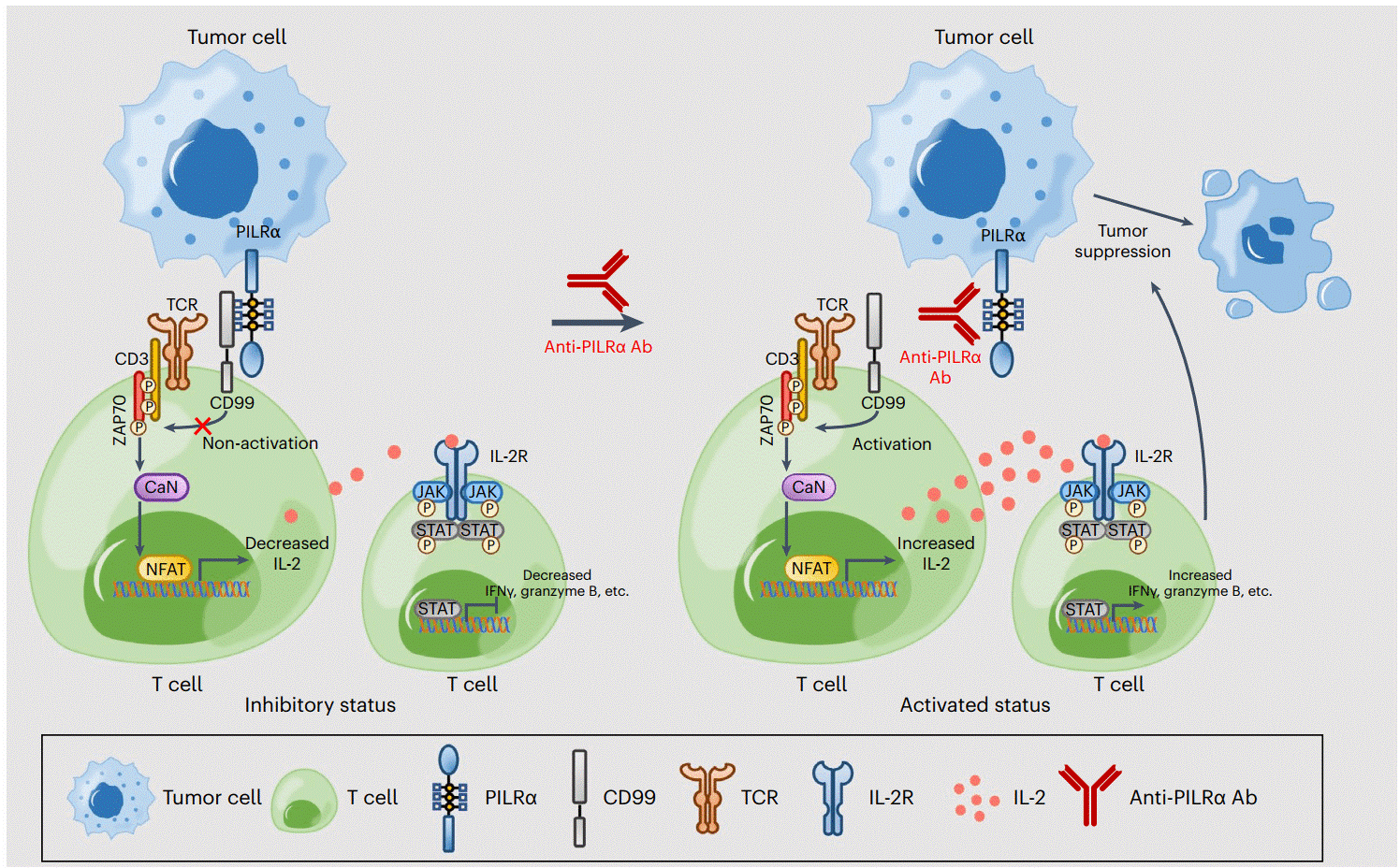
Professor Liu Wen's team from the School of Pharmaceutical Sciences at Xiamen University, along with academician Xia Ningshao and professor Luo Wenxin's team from the School of Public Health at XMU, has made breakthroughs in the field of cancer immunotherapy.
They published an article entitled PILR α on Tumor Cells Interacts With the T Cell Surface Protein CD99 to Suppress Antitumor Immunity in the journal Nature Cancer, providing a new strategy to break through the current bottleneck in cancer immunotherapy.
T cells are the core "warriors" of human antitumor immunity and their activation and function directly affect the effectiveness of cancer immunotherapy.
The research teams identified for the first time that PILR α, a special protein on the surface of cancer cells, can significantly inhibit the activation, proliferation and effector functions of T cells.
The protein interferes with the normal function of T cells by binding to the molecule CD99 on the surface of the T cells.
The research teams also developed therapeutic antibodies targeting PILR α.
The research not only reveals a novel mechanism of tumor immune escape but also provides a new tool for overcoming existing immune therapy resistance.
Antibody drugs targeting PILR α are expected to form a combination punch with PD-1 inhibitors, CAR-T therapy, and more, especially bringing hope to patients with solid tumors and immune "cold tumors", tumor types with a poor response to immunotherapy.

Research teams from Xiamen University provide a new strategy to break through the current bottleneck in cancer immunotherapy. [Photo/en.xmu.edu.cn]